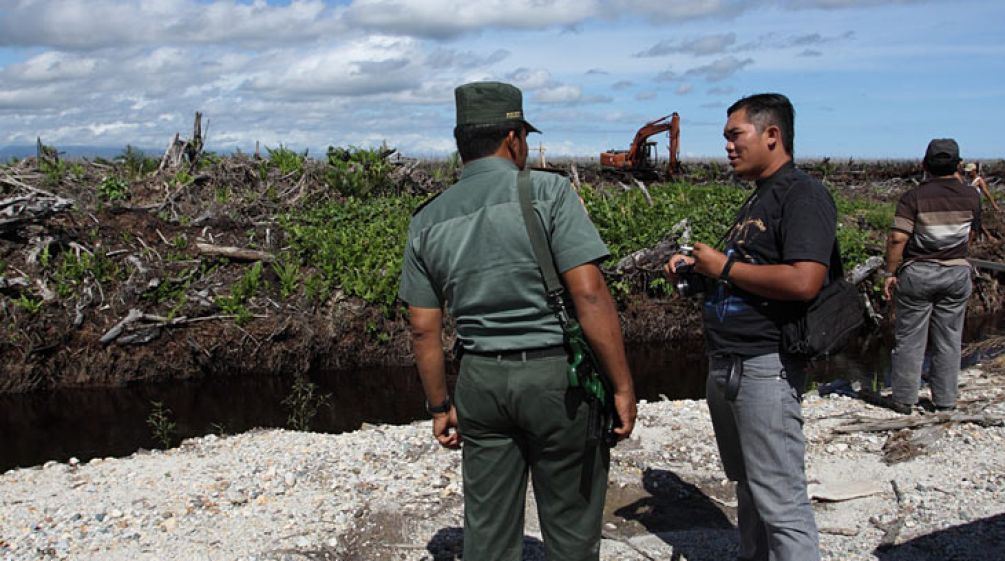Tripa: Ministries of Environment and Forestry start investigations
 Investigation team in Tripa (Credit: Coalition to save Tripa Forest)
Investigation team in Tripa (Credit: Coalition to save Tripa Forest)
May 10, 2012
Finally, field investigations into the crimes of the palm oil industry on Sumatra have begun. After months of inaction allowing the destruction of the Tripa Peat Swamps, at least some officials seem to have finally woken up. However, it's action, not words that is needed now to save the Tripa Peat Swamps and the Sumatran orangutans.
Finally, field investigations into the crimes of the palm oil industry on Sumatra have begun. After months of inaction allowing the destruction of the Tripa Peat Swamps, at least some officials seem to have finally woken up.
An investigation team in Banda Aceh collected evidence, including indications of the use of fire for land clearing, the clearing of deep peat lands, and violation of National Spatial Planning, all illegal under Indonesia law.
Zulkifli Hasan, the Minister of Forestry said that “Tripa should be protected and restored, but this is not within my jurisdiction. But because I support the request to save Tripa, I will do what I can."
Criminal prosecution of palm oil companies who operate outside the law is essential
However, it's actions, not words that are needed now to protect and restore Tripa. “For the investigation to have any relevant meaning, it must result in the revoking of permits, criminal prosecution of palm oil companies who continue to operate outside the law, Government Officials who violate National Spatial Planning Law, the restitution of land, and the restoration of the protected peat forest” said Kamaruddin, the lawyer representing local community members who reported environmental crimes being committed in Tripa to the National Police in November last year.
Deddy Raith, Forest Campaigner for Walhi (Friends of the Earth Indonesia), adds: “The companies must immediately be forced to stop work and close the canals draining and degrading the ecosystem in Tripa. National Police must take over the handling of the case and rapidly work towards the criminal prosecution of all violators of crimes in Tripa”. According to Deddy, Tripa is a litmus test for the legitimacy of the rule of law in Indonesia:
"If, in the face of such blatant and highly reported illegality, the Indonesian government does not take decisive action, it is as much as an acknowledgment that enforcement is selective and the laws are not worth the paper they are written on”, the conservationist concluded.










